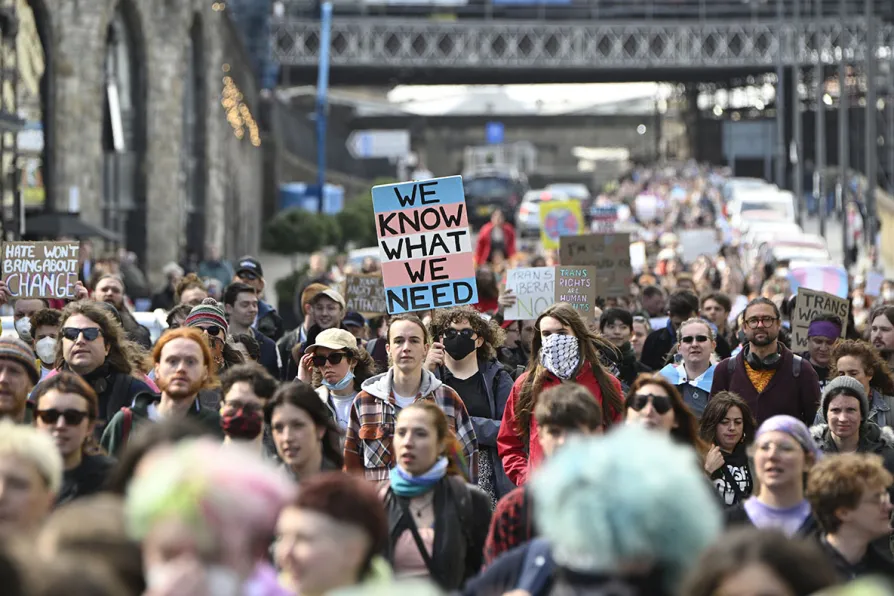

THOUSANDS of trans rights activists took to the streets in London and Edinburgh on Saturday for what were billed as “emergency demonstrations” following the Supreme Court ruling on the definition of a woman.
Demonstrators gathered in Parliament Square and at Edinburgh’s the Mound, before marching to the Westminster government offices at Queen Elizabeth House in rallies organised by Resisting Transphobia.
In Edinburgh, Lauren Yeoman, 38, said that she was taking part in the demonstration because she was “disgusted” at what she said amounted to the removal of trans people’s human rights.
She said of the Supreme Court ruling: “I felt sick to be honest. I think we’re taking a lot of backward steps.
“It feels like every day women are being attacked, minorities are being attacked, and the real problem is being ignored, and we’re pointing fingers at people who aren’t harming anybody, such as trans people, while ignoring the real problems.”
Among the groups supporting the London protest are Trans Kids Deserve Better, Pride in Labour, the Front for the Liberation of Intersex Non-binary and Transgender people (Flint) and TransActual.
Pride in Labour co-chair Avery Greatorex said: “Not a single trans person or trans organisation was represented in that case, and so we weren’t given an opportunity to have a seat at the table, which is obviously a very concerning thing for our community when decisions are being made without us.
“So the protest was organised to put pressure on the government, on the public, to act.
“To be able to secure the rights of transgender people and to secure those protections, we need legislative power and we need lobbying power.”
The Metropolitan Police has renewed its appeal for information after seven statues were daubed with graffiti during the London protest.
“Fag rights” and a heart were painted on the banner held by Millicent Fawcett, and “trans rights are human rights” was sprayed on the pedestal bearing a memorial to South African military leader and statesman Jan Christian Smuts.
No arrests have been made, Scotland Yard said.
Britain’s highest court ruled on Wednesday that the terms “woman” and “sex” in the 2010 Equality Act “refer to a biological woman and biological sex.”
This means transgender women with a gender recognition certificate can be excluded from single-sex spaces if “proportionate.”

Government urged to consider further measures












